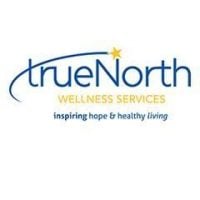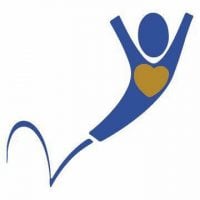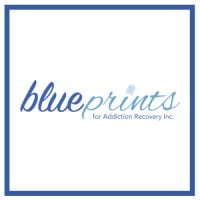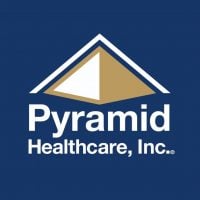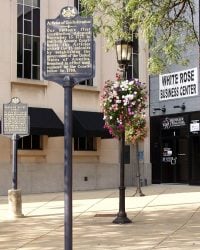Clarity Way
Drug Rehab Center in Hanover, Pennsylvania
Clarity Way provides comprehensive drug rehab and addiction treatment to individuals seeking recovery from addiction, with specialized services including detoxification, counseling, aftercare support, dual-diagnosis programs, and JCAHO accreditation all offered, as well as acceptability of private health insurance plans.
About This Hanover, PA Facility
Clarity Way, nestled in Hanover, Pennsylvania, stands out as a premier inpatient drug and alcohol rehab facility. It's recognized for its intense, individualized treatment programs, aiming to meet the unique needs, challenges, and goals of each client. Their dual diagnosis approach and a variety of clinical programming make them a versatile option for those tackling substance addiction and co-occurring disorders. They also prioritize privacy and comfort, offering private rooms and incorporating innovative therapies like music, art, and biofeedback into their holistic treatment plans.
Accredited by the Joint Commission on Accreditation of Healthcare Organizations (JCAHO), Clarity Way sets a high standard for substance abuse and dual diagnosis treatment. Their team of seasoned professionals employs a multipronged treatment strategy that includes aftercare support, detoxification, and diverse rehabilitation methods. This comprehensive approach ensures that clients have access to care that is both safe and effective, paving the way for a sustainable recovery.
- Personalized Treatment Plans: At Clarity Way, every client receives a tailored treatment plan designed to address their specific addiction and mental health challenges.
- Holistic and Alternative Therapies: From biofeedback and music and art activities to non-traditional recovery methods, clients are offered a range of therapeutic options to support individual paths to recovery.
- Innovative Group Therapy: Utilizing the HEART group therapy curriculum, Clarity Way fosters healing through sessions centered on hope, empathy, authenticity, resilience, and trust, incorporating insights from renowned experts.
Clarity Way specializes in treating a broad spectrum of addictions, including but not limited to opioids and substance abuse, alongside dual diagnosis conditions. They offer a comprehensive suite of treatment modes from medical detox to intensive inpatient and residential care, integrating 12-step and SMART Recovery methods, among others, to equip clients with the skills necessary for lasting sobriety.
Genders
Ages
Modality
Additional
Accreditations

JCAHO
Conditions and Issues Treated
Substance abuse refers to the intensive and inappropriate use of psychoactive substances. Psychoactive substances are those that affect brain function. These include illegal drugs, alcohol, and even the excessive use of prescription drugs. The overuse of psychoactive substances leads to severe physical or psychological dependence. It also affects the social life and relationships of the affected individual. Substance abuse is treatable.
The duration of treatment at Clarity Way in Hanover can require weeks or even months depending on the severity of the condition as there is a risk of relapse. Treatment options include medications, counseling sessions, various types of behavioral therapy, and group therapy in different combinations.
Addiction to prescription opioid painkillers like oxycodone and hydrocodone, and illicit opioids such as heroin, leads to potentially life-threatening withdrawal symptoms when discontinued. Opioid addiction treatment typically involves an inpatient stay at facilities like Clarity Way to make sure they get through withdrawal safely. Treatment also includes comprehensive mental health counseling.
Mental illness includes conditions such as anxiety, depression, schizophrenia, bipolar disorder. It can also happen that mental illness causes drug addiction and vice versa. Clarity Way in Pennsylvania knows it is vital to diagnose dual diagnosis or co-occurring disorder.
Levels of Care Offered
This center offers a variety of custom treatment tailored to individual recovery. Currently available are Aftercare Support, Detox, Drug Rehab, Dual-Diagnosis, Inpatient, Residential, with additional therapies available as listed below.
One of the first things an addict should do when entering treatment is to abstain from using illicit drugs completely. Depending on the length of time that the person has been using, the addict may have to go through alcohol or drug withdrawal. Fortunately, detox doesn’t have to be done alone, and withdrawal symptoms can be managed medically in an inpatient or outpatient setting. While detox may be uncomfortable, it is not life-threatening. Detoxification allows the addict to rid the body of all traces of drugs or alcohol and gives the addict a clean slate for their recovery.
Inpatient programs are intensive regimes that require individuals suffering from serious addictions to admit themselves into a controlled environment. Inpatient programs in Pennsylvania generally span over 28 days to six months. The first step in an inpatient program is medically assisted detox. Doctors and addiction specialists at Clarity Way monitor the individual’s vital signs as the drugs leave their system. Some inpatient rehab programs also provide counseling for family members to provide encouragement and emotional support. In inpatient programs, patients have access to 24-hour medical supervision.
Residential treatment programs are those that offer housing and meals in addition to substance abuse treatment. Rehab facilities that offer residential treatment allow patients to focus solely on recovery, in an environment totally separate from their lives. Some rehab centers specialize in short-term residential treatment (a few days to a week or two), while others solely provide treatment on a long-term basis (several weeks to months). Some offer both, and tailor treatment to the patient’s individual requirements.
Treatment is just a first step in sustaining sobriety. After rehabilitation, counseling for aftercare helps the person adapt to a life without drugs. A sober living facility in Hanover, job therapy, or educational assistance may be included in this service, managed by Clarity Way. This is when a preventive strategy for relapse starts to take shape.
Clarity Way‘s Therapies & Programs
In addiction recovery at Clarity Way, therapy plays a significant role. This helps patients get to the root of their addiction and discover how the problems that contributed to their use can be handled better. Therapy can be performed in a group and one on one settings. The patient interacts with the therapist in a one-on-one atmosphere during individual therapy. This encourages them to reflect on the underlying addiction problems and develop ways to avoid potential future abuse.
Recovering from addiction involves recovering relationships as well. One of the most common areas of stress and damage during addiction is in intimate relationships. Couples therapy at Clarity Way can rebuild trust and joy that may have been damaged. Addiction involves everyone in the family, not only the addict.
Family roles can change in damaging ways that may require professional help to rebalance. Successful intimate relationships can decrease the chances for relapse by ensuring a healthy environment after rehab in Hanover, PA.
Addiction and alcoholism affect the entire family. For this reason, family therapy is vital to a person’s recovery from addiction. In contrast to couples counseling, family therapy at Clarity Way may include siblings, children, parents, and other significant people in the recovering person’s life. Family support is one of the most important pillars of recovery.
Many people turn to drugs and alcohol as a way of processing trauma that has affected them in the past. Trauma can include abuse, neglect, the loss of a loved one and other unpleasant incidents. Trauma therapy at Clarity Way helps patients process trauma. It gives them the tools to deal with it in a healthier manner.
Dialectical behavioral therapy (DBT) is a type of Cognitive Behavioral Therapy that focuses on eliminating specific negative thoughts such as suicidal thoughts that can potentially lead to an individual inflicting self-harm. It is useful in the treatment of patients exhibiting uncontrollable emotions, intense mood swings, and borderline personality disorders.
The term “Dialectic” means the integration of opposites. In the substance abuse context, DBT refers to accepting the patient’s addiction and working to change their thoughts and behavior. It improves life skills such as controlling the intense emotions without reacting impulsively, resolving the interpersonal conflicts effectively, and promoting awareness about self and others.
Cognitive Behavioral Therapy (CBT) examines the relationship between a patient’s thoughts, feelings and behaviors. Clarity Way aims to establish a healthy response to thoughts and feelings as an alternative to turning to drugs and alcohol. It also promotes healthy communication between addicts and those around them. It is and effective therapy for people suffering with all types of addictions.
Rational Emotive Behavior Therapy (REBT) is a type of cognitive therapy. It is based on the principle that irrational thoughts are responsible for the emotional and behavioral changes in addiction. So, the therapy starts with identifying the underlying irrational thoughts. These thoughts are then challenged and opposed logically and then replaced with positive thoughts. It also helps to change unwanted behavior with techniques such as meditation.
By imparting positive thoughts and emotions, Rational Emotive Behavior Therapy (REBT) makes the individual self-reliant with a capacity to handle the emotional and behavioral issues in future by themselves without professional help. This self-dependence benefits the patients and prevent relapses.
EMDR therapy is combined with behavioral therapies to address the root cause of the problem. The rapid eye movements reduce the patients’ negative feelings related to the trauma and promote calmness and relaxation.
The recovery technique used by Alcoholics Anonymous is the 12 step program, but it can relate to any form of addiction. The 12 steps that addicts must take on the road to recovery are explained. Measures include acknowledging that you have a problem and agreeing to turn around your life. The curriculum, instructed by Clarity Way, also requires a belief in a greater power and making amends to others.
Contingency Management (CM), also called motivational incentives, is a type of pure behavioral therapy. It’s based on the idea that behavior is shaped, motivated, or controlled by its outcomes. CM is a clinical application at Clarity Way of operant conditioning, which helps clients eliminate unwanted behaviors by the use of positive and negative reinforcement.
Patient Experience
Creative Arts
For those combating addiction recovery in Hanover, PA, creative arts therapy, or expressive therapy, is advantageous. Reading, music, theater, art, and other types of self-expression may be included. Clarity Way uses this to enhance the mental state of the patient and help them to focus on something other than addiction. It helps patients to explore how, through the creative process, their thoughts and emotions play out.
Experiential Therapy at Clarity Way
Experential therapy is a unique type of therapy that deals with the subconscious mind. This treatment available at Clarity Way in Hanover, PA encourages individuals to work out their issues with their inner self through synchronous experiences.
This non-traditional treatment method makes use of the physique and encourages people to take part in various physical and emotional activities, movements, and practices. Some of the most common examples of experiential therapy are equine therapy, music therapy, adventure therapy, and role playing. Through these various methods, an individual is believed to heal from trauma, negative emotions, and hurtful memories faster. Moreover, experiential therapy is known to have enduring results which can be beneficial to sufferers.
Payment Options Accepted
For specific insurance or payment methods please contact us.
Is your insurance accepted?
Ask an expert, call (888) 674-0062
Additional Details
Specifics, location, and helpful extra information.
Hanover, Pennsylvania 17331 Phone Number(888) 478-3890 Meta DetailsUpdated April 15, 2024
Staff Verified
Patient Reviews
There are no reviews yet. Be the first one to write one.
Hanover, Pennsylvania Addiction Information
Pennsylvania ranks 14th in the nation for drug-related deaths. More than 10% of all deaths in Pennsylvania have been related to drugs and alcohol. 30% of Pennsylvania youth reportedly drink alcohol monthly, with more than 20,000 teenagers having an alcohol problem. The rate of opioid misuse in Pennsylvania is double the national average.
The drug addiction problem in Hanover, Pennsylvania, is relatively bad. There were 272 admissions to treatment facilities in Hanover in 2016. This indicates that there is a significant drug addiction problem in the area. Most drugs abused in the city are opioids, including prescription painkillers and illicit narcotics like heroin. There are a lot of support groups and resources for those who are struggling with addiction in Hanover, PA, to recover.
Treatment in Nearby Cities
- Marienville, PA (160.8 mi.)
- Wrightsville, PA (23.7 mi.)
- Darby, PA (88.1 mi.)
- Frackville, PA (73.8 mi.)
- Akron, PA (43.3 mi.)
Centers near Clarity Way
The facility name, logo and brand are the property and registered trademarks of Clarity Way, and are being used for identification and informational purposes only. Use of these names, logos and brands shall not imply endorsement. RehabNow.org is not affiliated with or sponsored by Clarity Way.


